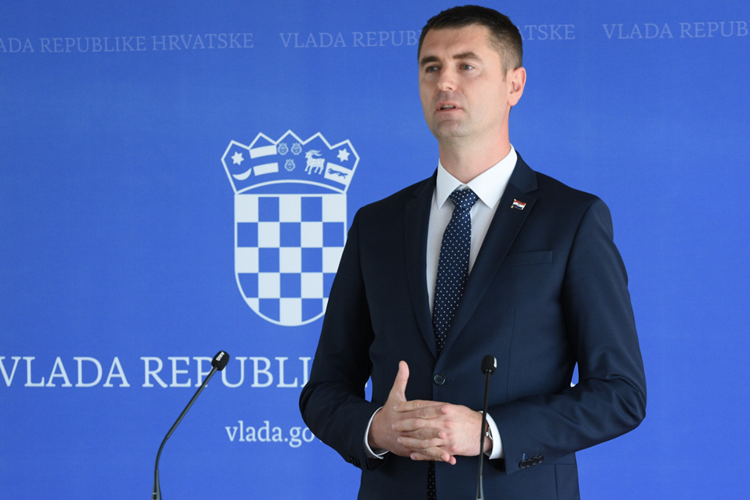- Published: 18.07.2022.
Filipović: Petrol to cost HRK 13.02, diesel HRK 13.43 per litre
Economy Minister Davor Filipović said on Monday that for the next fortnight the price of petrol would be HRK 13.02 per litre, down from HRK 13.50, while the price of diesel would go up from HRK 13.08 to HRK 13.43.
Fuel prices on motorways and elsewhere will be the same.
The government will extend the price cap on blue-dyed diesel to HRK 9.45 per litre for another two weeks, as was the case in the past two weeks.
According to Filipović, the retail margin will remain at HRK 0.65 per litre of petrol and diesel, as will excises of HRK 0.80 on petrol and HRK 0.40 on diesel.
"Without these government moves, the price of diesel would have been HRK 15.70 and the price of petrol HRK 14.92," the minister said.
Filipović believes that this solution is acceptable to everyone, both small distributors and citizens, because the price of petrol has been reduced by HRK 0.48, while the price of diesel will increase by HRK 0.35, but this, he noted, is not the highest price of diesel that we have had until now.
The government's new steps depend on price trends on the Mediterranean market, he underscored, adding that this morning the price of diesel went down while the price of petrol increased.
Meanwhile, on the London market, the price of a barrel of oil has fallen for three weeks in a row. Last week, it fell by 5.5%, to $101.16.
The biggest weekly drop in oil prices in the last month is a consequence of the increase in interest rates by central banks in the world in order to suppress high inflation, which will slow down the growth of the global economy and thus weaken the demand for oil.
The biggest weekly drop in oil prices in the past month is a consequence of the increase in interest rates by central banks in the world in order to suppress high inflation, which will slow down the growth of the global economy and thus weaken the demand for oil.
On the other hand, the US dollar, another important component in the calculation of fuel prices, has strengthened significantly in recent weeks.
The US Dollar Index, which measures the value of the US dollar against the other six most important world currencies, increased by 1% last week, reaching the new highest level in 20 years.
At the same time, the dollar strengthened against the euro by 1.1%, so the price of the euro slipped to $1.0080, and on several occasions, dipped below the level of the dollar, for the first time in 20 years.
Filipović recalled that on 4 July, the government also extended the cap on basic fuel prices at filling stations off-highways for another 14 days, and fixed wholesale prices.
Wholesale prices were fixed so they could not amount to more than the final retail price prescribed by the regulation for off-highway retail outlets.
Okoli gas storage facility is 41% full
Regarding the Okoli underground gas storage facility, Filipović said that last Friday it was 41% full and would be 90% full by 1 October.
That task is being carried out by the national electricity provider HEP, and he expects that it will be achieved as planned.
Asked whether citizens should fear a possible gas shortage, Filipović said that Croatia's total annual gas consumption is 2.9 billion cubic metres. On the other hand, the capacity of the Krk LNG terminal is also 2.9 billion cubic metres, and that of the Okoli facility is around 430 million.
"We have sufficient quantities to ensure gas supply security for Croatia," the minister said.
Asked if Croatia is preparing energy savings similar to some EU countries, he said the government will make a plan related to recommendations and savings and that it is still waiting for the official European Commission document on this issue, which will be published in a day or two. He added that it will certainly come out with recommendations for households and businesses.
Regarding the postponed meeting with the Serbian minister of energy, he pointed out that it is clear to many that in these changed political situations, Croatia is moving towards becoming an energy hub of Europe, with an increase in LNG capacity and the construction of additional gas pipelines, while at the same time Serbia is concerned about its energy future. The topic discussed, he revealed, should have been energy.
"The minister cancelled her announced visit yesterday, I believe that it has nothing to do with her, but that it was an instruction from her boss, Mr Vučić," concluded Filipović.
Text: Hina
